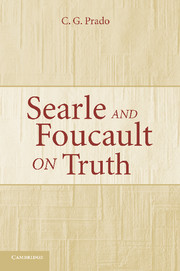2 - Searle
Published online by Cambridge University Press: 03 December 2009
Summary
Language, Mind, Society
Searle's work falls into three main areas: philosophy of language; philosophy of mind, including cognitive science; and social reality (Matson 2000, 586–96; Honderich 1995, 816; Guttenplan 1996, 544–50). But while a fairly distinct area, his work on social reality must be seen as a natural extension of his work on mind and, to a lesser extent, language. Searle himself summarizes his work in terms of the questions he addresses, saying that
the philosophical problems that most interest me have to do with how the various parts of the world relate to each other — how does it all hang together? … The theory of speech acts is in part an attempt to answer the question, How do we get from the physics of utterances to meaningful speech acts performed by speakers and writers? The theory of the mind … is in large part an attempt to answer the question, How does a mental reality, a world of consciousness, intentionality, and other mental phenomena, fit into a world consisting entirely of physical particles in fields of force?
(Searle 1995, xi)Searle's efforts regarding social reality are an attempt to answer the further question of how there can be “an objective world of money, property, marriage, governments, elections … in a world that consists entirely of physical particles” (Searle 1995, xi). His work in these areas is tightly interconnected, and his progress has been cumulative.
- Type
- Chapter
- Information
- Searle and Foucault on Truth , pp. 30 - 65Publisher: Cambridge University PressPrint publication year: 2005



